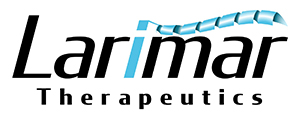Nonclinical data for ZGN-1258 reproduce efficacy seen in first generation candidate for PWS
Data show highly improved safety profile
Company also presenting study design of PATH for PWS natural history study co-sponsored by FPWR
BOSTON, Oct. 04, 2018 (GLOBE NEWSWIRE) -- Zafgen, Inc. (Nasdaq:ZFGN), a clinical-stage biopharmaceutical company leveraging its proprietary knowledge of MetAP2 systems biology to develop novel therapies for patients affected by a range of metabolic diseases, announced today results from three nonclinical, Investigational New Drug (IND)-enabling studies of ZGN-1258 to be presented at the 2018 Foundation for Prader-Willi Research (FPWR) Family Conference taking place in Las VegasOctober 4 – 6, 2018. ZGN-1258 is Zafgen’s second-generation, novel investigational MetAP2 inhibitor for the treatment of rare metabolic disorders, including Prader-Willi syndrome (PWS), designed to decrease hyperphagia, change the way the body metabolizes fat, and reduce fat mass. Together, these studies demonstrate nonclinical efficacy and safety for ZGN-1258 and support further development. The data being presented include:
- ZGN-1258 effects on body weight and food intake of hyperphagia and obesity;
- ZGN-1258 effects on other behavioral manifestations commonly observed in PWS, such as low physical activity, anxiety, and obsessive-compulsive behaviors; and
- ZGN-1258 differentiation on nonclinical safety measures.
“We are excited to connect with the PWS community at the Annual FPWR Conference and to highlight the progress we’ve made in advancing ZGN-1258 for the treatment of PWS, as we work to meet a critical need for patients and families affected by this serious, life-threatening disease,” said Dennis Kim, M.D., Chief Medical Officer, Zafgen. “Collectively, the body of evidence we are building with our nonclinical, IND-enabling studies for ZGN-1258 demonstrate an efficacy profile that matches our first generation MetAP2 inhibitor – from reduction in hyperphagia and body weight to increases in activity and reduction in anxiety- and compulsive-like behaviors – as well as differentiation on nonclinical safety measures. These nonclinical studies may provide important read-throughs to the potential impact of ZGN-1258 for people living with PWS.”
The hyperphagia associated with PWS can be extremely debilitating, causing individuals to struggle with concentration, social interaction, school and work, and the overwhelming desire for food can result in dangerous behaviors. The condition also impacts the patients' caregivers and the entire family, who also live under conditions that restrict access to food and may limit social freedom and flexibility. The studies being presented not only provide important nonclinical data related to the compound’s effects on body weight, food intake, and behavioral manifestations, but also combined show the potential for MetAP2 inhibition to address multiple factors of a rare, complex disease that in turn could have a considerable impact on people with PWS and their families.
In one poster, the effects of ZGN-1258 are characterized in mouse models of hyperphagia and obesity: mice with diet-induced obesity (DIO), leptin-deficient ob/ob mice, and mice with hypothalamic injury associated (via gold thioglucose (GTG)) obesity. All three models have elements of hyperphagia in disease presentation, and the GTG and ob/ob models represent impaired hypothalamic function as a contributor to hyperphagia, which may translate to hypothalamic dysregulation seen in PWS. ZGN-1258 administered daily produced a dose-dependent reduction in intake of the high-fat diet and body weight in DIO mice; dose-dependent reduction in food intake and weight and normalization of the hyperphagic phenotype in ob/ob mice; and reduced food intake and weight in mice with GTG-induced obesity. Across the models and doses, the vast majority of endpoints were highly statistically significant (p<0.001).
In a second poster, in three mouse models that share features with PWS, ZGN-1258 demonstrates improvement in behavioral manifestations commonly observed in PWS, including low physical activity, anxiety and obsessive-compulsive behaviors. ZGN-1258 treatment produced statistically significant, robust weight loss in obese, leptin-deficient ob/ob mice, and a smaller but statistically significant reduction in body weight in normal weight Magel2-null mice, which have a chromosome 15 mutation similar to PWS, as well as in normal weight FMR1 knockout (KO) mice, with characteristics of anxiety and compulsive behaviors (all p<0.05). Measurements of anxiety-like behavior were reduced in all three mouse models (p<0.05). Most interestingly, ZGN-1258 treatment produced an observable, significant, dose-dependent improvement in locomotor activity in all mouse models.
A third poster shows a comparison of the effects of ZGN-1258 and Zafgen’s first generation MetAP2 inhibitor on safety measures, including measures of thrombotic risk, demonstrating a highly differentiated profile for ZGN-1258 on endothelial cell effects. In toxicology models, ZGN-1258 doses approximately 100-fold greater than the projected clinical exposure had only a mild and transient effect on D-dimer and platelets, demonstrating a significantly improved safety profile and none of the prolonged endothelial cell effects associated with cardiovascular safety risk seen with the prior compound.
“Advancing a second generation MetAP2 inhibitor to help patients and families affected by PWS is at the core of Zafgen’s mission and dedication to a community that inspires us to innovate, and we are thrilled to be able to share these important data at the Annual FPWR Conference,” said Jeffrey Hatfield, Chief Executive Officer, Zafgen. “Our MetAP2 inhibition programs address the most serious, complex metabolic diseases, like PWS, and the consistency of efficacy and differentiated safety data that we are seeing not only within the ZGN-1258 program, but also across our pipeline with ZGN-1061 for type 2 diabetes, gives us tremendous confidence as we bring forward these much-needed treatments.”
Zafgen will also present the study design for PATH for PWS, a natural history study co-sponsored by FPWR and Zafgen that is intended to help better understand serious medical events in PWS in at least 500 patients over a 4-year period, as well as evaluate how PWS related behaviors change over time. The data from this study will inform the development and clinical trial design of potential new treatments for PWS, including ZGN-1258. The PATH for PWS study has begun enrolling participants.
All four posters being presented at the Annual FPWR Conference will be available following the presentations at www.zafgen.com/our-science-approach/.
About Prader-Willi Syndrome (PWS)
Prader-Willi syndrome (PWS) is a rare, genetic form of life-threatening obesity characterized by unrelenting pathologic hunger (hyperphagia) leading to dangerous food-seeking behavior, and there is currently no approved treatment for hyperphagia. People with PWS are also impacted by slowed metabolism, psychiatric conditions and higher risk for cardiopulmonary and metabolic co-morbidities. Our best estimate of prevalence is approximately 1:40,000 people. People with PWS have a shortened life expectancy of approximately 32 years.
About Zafgen
Zafgen (Nasdaq:ZFGN) is a clinical-stage biopharmaceutical company leveraging its proprietary MetAP2 biology platform to develop novel therapies for patients affected by complex metabolic diseases. Zafgen has pioneered the study of MetAP2 inhibitors in both common and rare metabolic disorders and is currently advancing programs for type 2 diabetes, Prader-Willi syndrome and liver diseases. The Company’s lead product candidate, ZGN-1061, a MetAP2 inhibitor for difficult-to-control type 2 diabetes, has successfully completed the initial part of a Phase 2 clinical trial. Learn more at www.zafgen.com.
Safe Harbor Statement
Various statements in this release concerning Zafgen's future expectations, plans and prospects, including without limitation, Zafgen's expectations regarding the collection of medical history and medical events from PATH for PWS participants to inform development and clinical trial design for potential new treatments for PWS, including ZGN-1258, and the use of ZGN-1258, ZGN-1061 and other second-generation MetAP2 inhibitors as treatments for metabolic diseases including Prader-Willi syndrome, type 2 diabetes and obesity and Zafgen's expectations with respect to the timing and success of its ability to collect and analyze PATH for PWS data for development and clinical trial design and with respect to its nonclinical studies and clinical trials of ZGN-1258, ZGN-1061 and its other product candidates, may constitute forward-looking statements for purposes of the safe harbor provisions of The Private Securities Litigation Reform Act of 1995 and other federal securities laws. Forward-looking statements can be identified by terminology such as "anticipate," "believe," "could," "could increase the likelihood," "estimate," "expect," "intend," "is planned," "may," "should," "will," "will enable," "would be expected," "look forward," "may provide," "would" or similar terms, variations of such terms or the negative of those terms. Actual results may differ materially from those indicated by these forward-looking statements as a result of various important factors, including, without limitation, Zafgen's ability to successfully collect and analyze medical history and medical events from PATH for PWS participants, the capacity for such data to inform clinical trial design and potential areas for future study, Zafgen’s ability to successfully demonstrate the efficacy and safety of ZGN-1258, ZGN-1061 and its other product candidates and to differentiate ZGN-1258, ZGN-1061 and its other product candidates from first generation MetAP2 inhibitors, such as beloranib, the nonclinical and clinical results for ZGN-1258, ZGN-1061 and its other product candidates, which may not support further development and marketing approval, actions of regulatory agencies, which may affect the initiation, timing and progress of nonclinical studies and clinical trials of its product candidates, Zafgen's ability to obtain, maintain and protect its intellectual property, Zafgen's ability to enforce its patents against infringers and defend its patent portfolio against challenges from third parties, competition from others developing products for similar uses, Zafgen’s ability to manage operating expenses, Zafgen's ability to obtain additional funding to support its business activities and establish and maintain strategic business alliances and new business initiatives when needed, Zafgen's dependence on third parties for development, manufacture, marketing, sales and distribution of product candidates, and unexpected expenditures, as well as those risks more fully discussed in the section entitled "Risk Factors" in Zafgen's most recent Annual Report on Form 10-K filed with the Securities and Exchange Commission, as well as discussions of potential risks, uncertainties, and other important factors in Zafgen's subsequent filings with the Securities and Exchange Commission, including without limitation Zafgen’s Quarterly Reports on Form 10-Q. In addition, any forward-looking statements represent Zafgen's views only as of today and should not be relied upon as representing its views as of any subsequent date. Zafgen explicitly disclaims any obligation to update any forward-looking statements, whether as a result of new information, future events or otherwise.
Media/Investor Relations Contacts:
Zafgen, Inc.
Patricia Allen
Chief Financial Officer
617-648-9792
Media
Krystle Gibbs
Ten Bridge Communications
krystle@tenbridgecommunications.com
508-479-6358
Investors
John Woolford
Westwicke Partners
john.woolford@westwicke.com
443-213-0506

Source: Zafgen, Inc.



